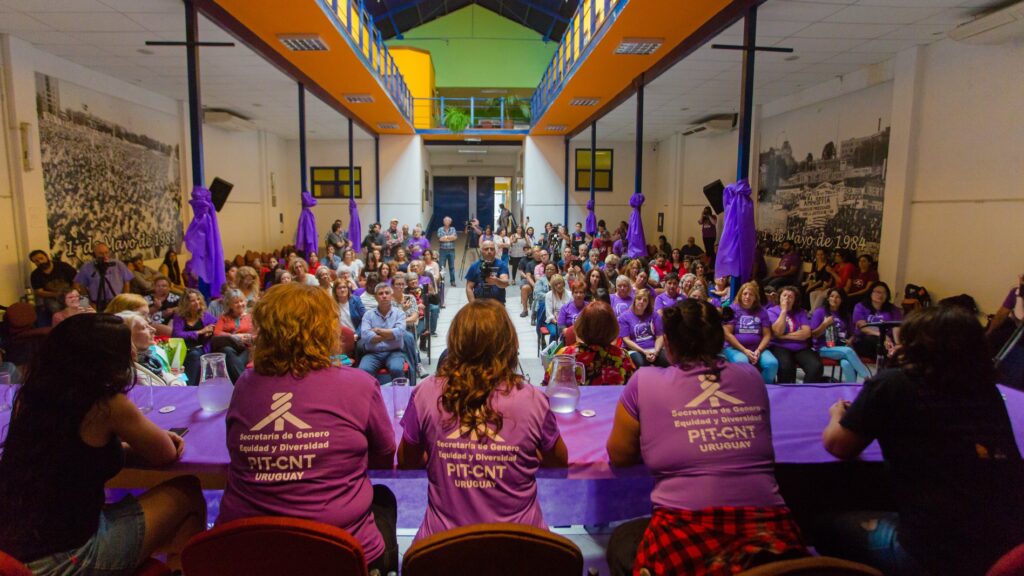18 June, 2020Uruguay was the first country in the world to ratify International Labour Organization (ILO) Convention No. 190 to end violence and harassment in the world of work. IndustriALL affiliated unions played a leading role in bringing about the ratification.
PROFILE
The new Convention and Recommendation to end violence and harassment in the world of work was adopted at the International Labour Conference of the ILO, in Switzerland in June 2019. It recognizes that violence and harassment are a threat to equality of opportunity, and are unacceptable and incompatible with decent work.
The government under the former president of Uruguay, Tabaré Vásquez, presented the initiative to Parliament in September and the House of Representatives approved it unanimously on 17 December 2019.
The Ambassador and Permanent Representative of Uruguay to the United Nations in Geneva, Ricardo González Arenas, deposited the instrument of ratification with ILO Director-General, Guy Ryder, in a virtual ceremony held on June 12, 2020.
Uruguay thereby became the first ILO member state to ratify C190.
Uruguay has legislation that covers some of the issues mentioned in C190, which helped with its ratification. For example, Law No. 18561 on sexual harassment, prevention and penalties in the workplace and concerning student-teacher relationships, and Law No. 19580 on gender-based violence against women.

Ana Aguilera, member of the Gender, Equality and Diversity Secretariat of the Uruguayan trade union centre PIT-CNT
Ana Aguilera, member of the Gender, Equality and Diversity Secretariat of the Uruguayan trade union centre PIT-CNT, says:
“This Secretariat has been working for many years on sexual harassment at work and on gender-based violence against women. 15 or 20 years ago we worked in coordination with the legislators to submit a proposal for a law on sexual harassment in the workplace and education, through a tripartite commission. Law No. 18561 was enacted in 2009 and since then there has been an increase in complaints of workplace harassment received by the Ministry of Labour.
“Law No. 19580, enacted in 2017, has a chapter that defines what is considered to be violence, and includes women who suffer workplace harassment. This also helped to make it more possible to report and complain about these issues.”
Aguilera explains that based on this legislation a successful campaign was carried out in favour of the ratification of ILO Convention 190 in Uruguay. It consisted of a united campaign by the unions that are part of the PIT-CNT, the Ministry of Labour, the government, women's organizations and trade union centres in the region.
Thanks to the ratification of the new Convention, Uruguay will also have to adopt an inclusive, integrated and gender-responsive approach to preventing and eliminating violence and harassment at work. This will apply to both the public and private sectors, to the formal and informal economy, and in both urban and rural areas.
Also, this legislation should require employers to take appropriate measures to prevent violence and harassment in the world of work.
Unions fight for a world of work free from violence and harassment
Through the Gender, Equality and Diversity Office of the PIT-CNT, IndustriALL’s affiliates in Uruguay were actively involved in the previous tripartite talks on the ratification of the Convention.
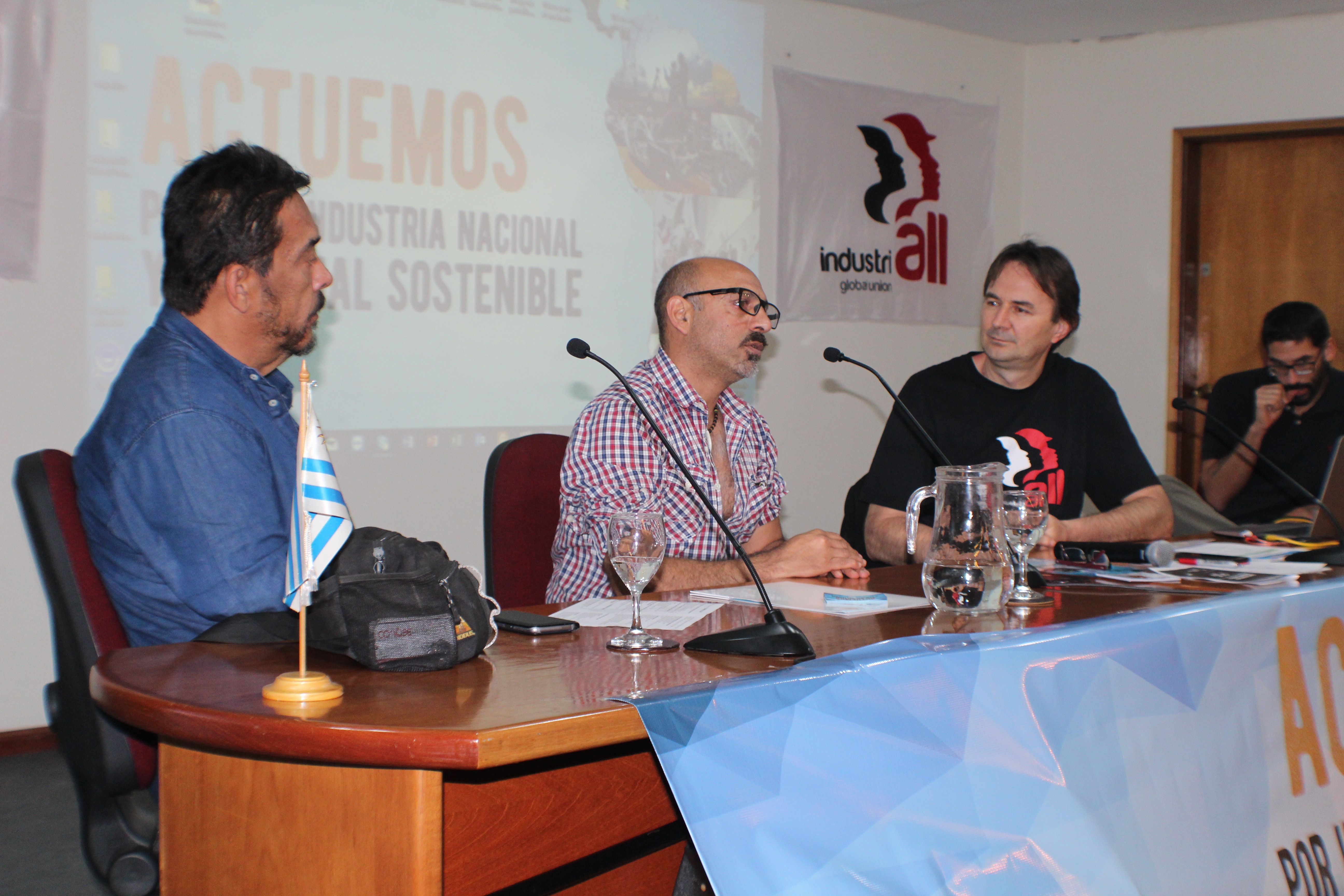
Marcelo Abdala, general secretary of the PIT-CNT
Marcelo Abdala, general secretary of the PIT-CNT and of the National Union of Metalworkers and Related Branches, says:
“After the international ILO conference where C190 was adopted, the previous government called a tripartite meeting where the women delegates of the PIT-CNT acted to ensure that it was quickly implemented in legislation. The Vázquez government voted in favour of it, together with the labour movement, and the employers abstained. The PIT-CNT organized workshops to explain the content of the Convention and why it was important for unions to use it as a tool. The unions affiliated to IndustriALL in Uruguay participated actively in this.
“We were pleased that Uruguay became the first country in the world to ratify the Convention and include it in its national regulations. For us, anything that can increase awareness and promote eradication of the different components of harassment, both sexual and at work, is a victory for democracy.”
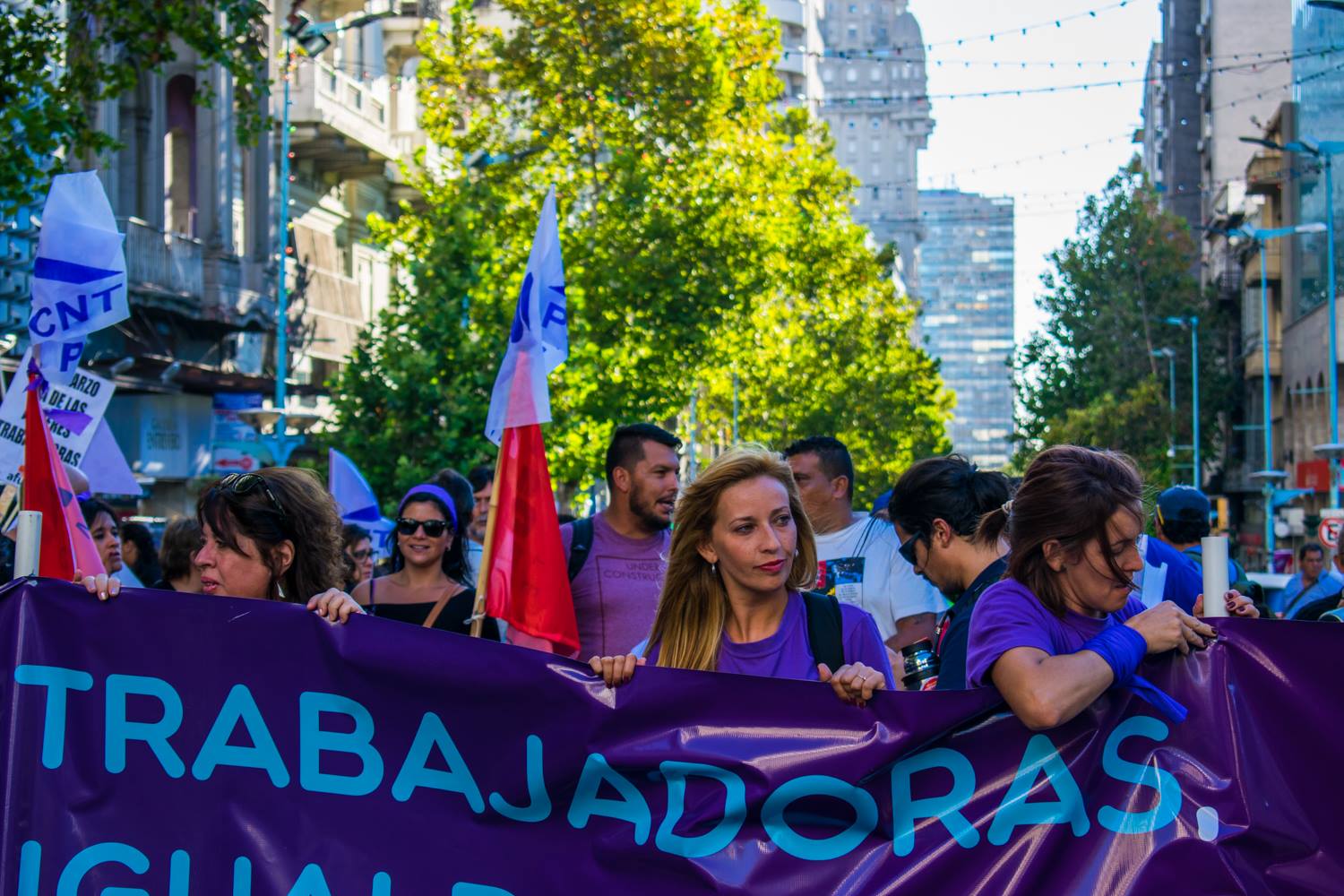
Fernanda Ceballos, member of the Gender, Equality and Diversity Office of the PIT-CNT and UNTMRA
Fernanda Ceballos, member of the Gender, Equality and Diversity Office of the PIT-CNT and UNTMRA, adds:
"We have been working for a long time on the issue of sexual harassment and zero tolerance for violence in the workplace, and we organize workshops to raise awareness among unions concerning this issue. We are also working on gender-related clauses in collective bargaining agreements, in conjunction with companies and the Ministry of Labour. After ratifying C190, we held meetings with UNTMRA to inform people of its scope. A large number of women workers have faced sexual harassment at work, so we believe that ratification is very important to fight for a world of work free from violence.”
Both the Union of Tanning Workers and the Federation of Paper and Cardboard Workers of Uruguay have few women members as the companies where they work do not have women on their payroll.
However, both unions support policies favouring gender equality and push for the same rights for both men and women in their collective agreements.
Washington Cayaffa, general secretary of the FOPCU, says:
“Our industry is characterized by not having a large female workforce in manufacturing plants. There are more women in the office-workers section, but we haven’t managed to organize many of them.
“In our collective agreement there is an item where we ask for the application of policies to protect equal rights for women in the workplace. The ratification of C190 is one of the policies that we support.
“Our Federation is encouraging affiliated unions to defend women's rights as regards equality. For example, they should support the same salary definition so that women workers earn the same wages as a man doing the same job”.
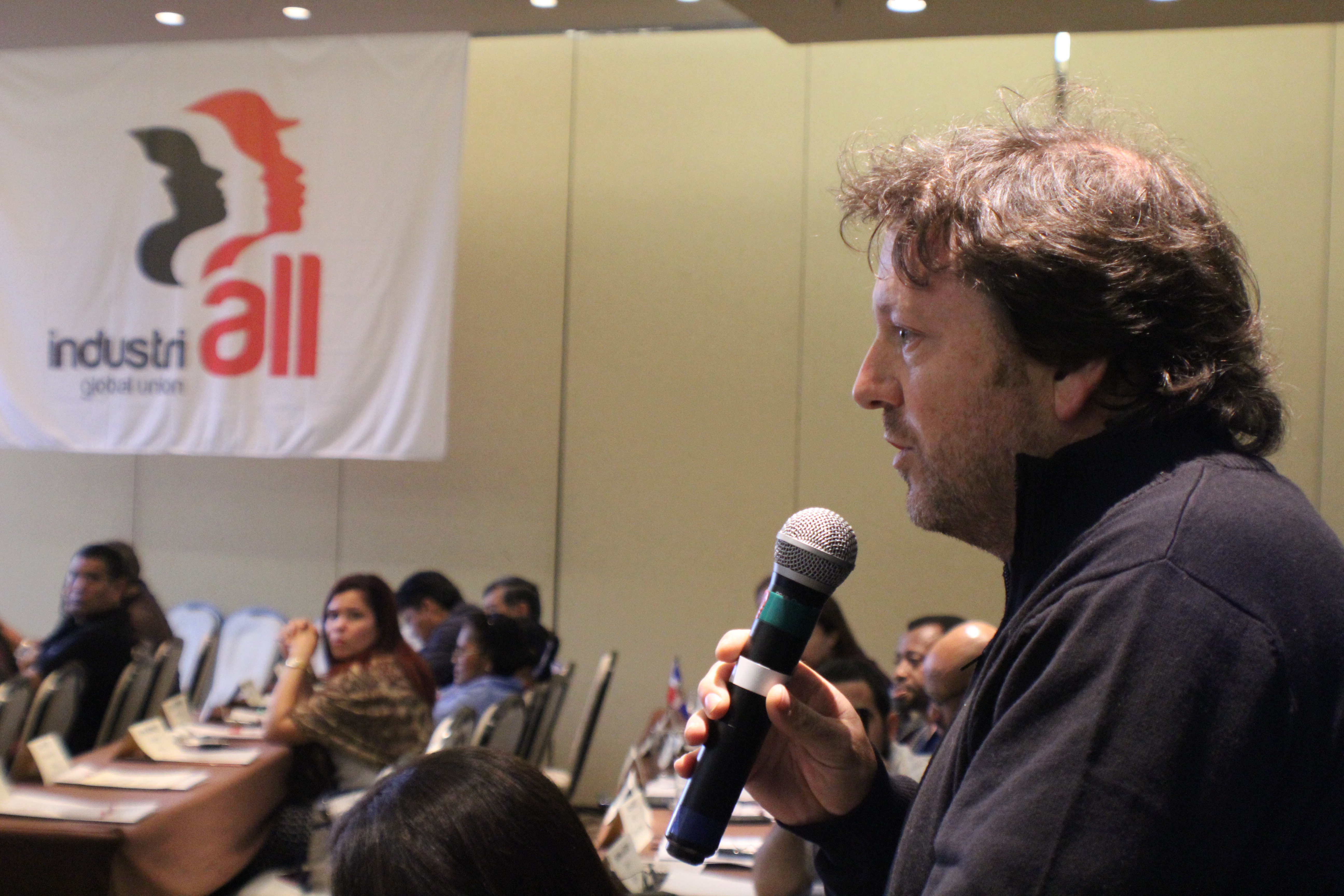
UOC general secretary, Carlos Bico
“There are not many women in the leather industry, but some of them attended the meetings of the PIT-CNT Gender Office to discuss how to support ratification of C190,”
says UOC general secretary, Carlos Bico.
“Currently, five per cent of the workforce in our factories are women. In the Wage Councils’ collective agreement structured by branch of activity, the UOC proposed that more women should be integrated into the staff of tannery workers.”
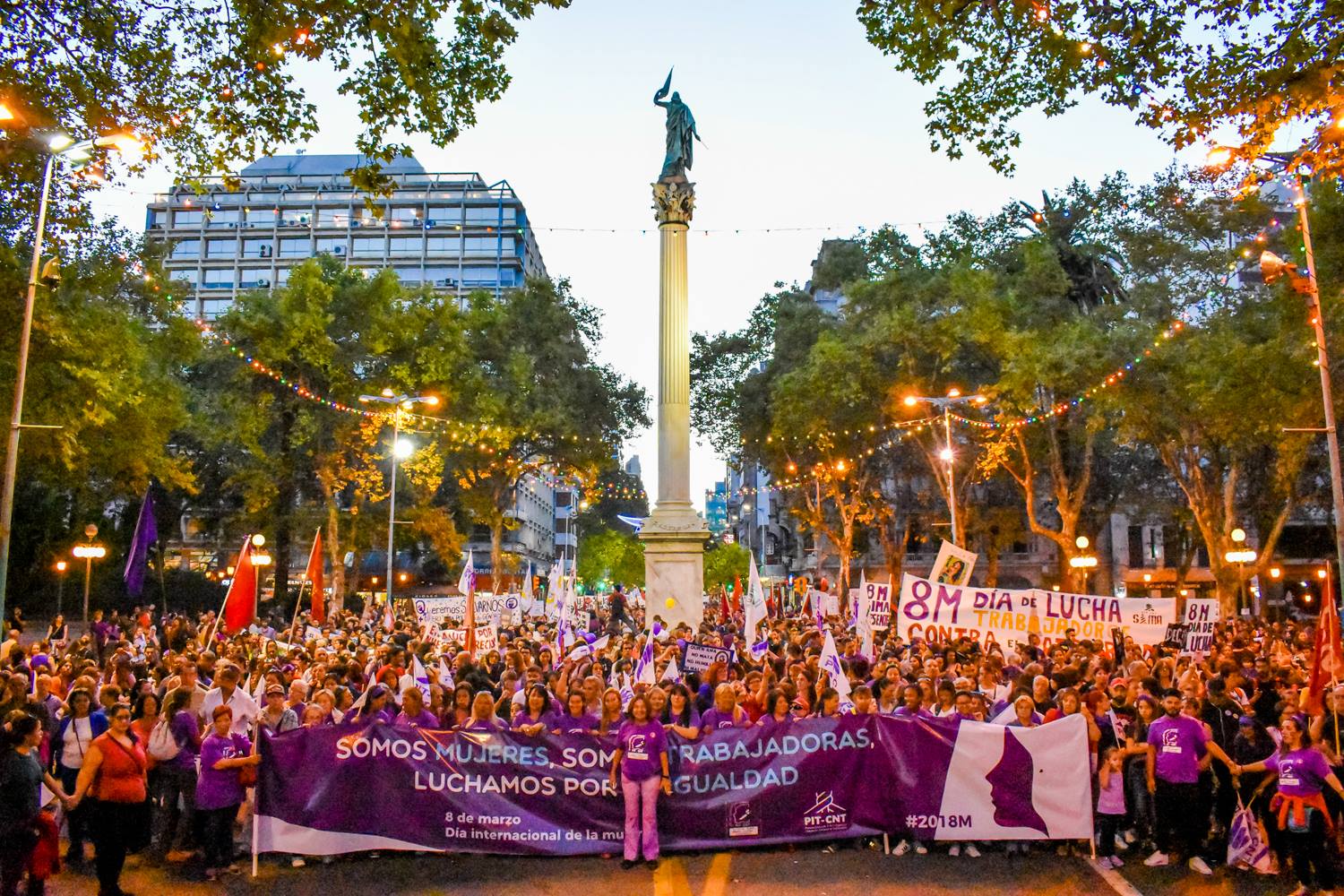
Uruguay demonstration
The united work of Uruguayan unions
The UOC, UNTMRA and FOPCU are some of the oldest union organizations in Uruguay. Their origins date back to 1904, 1953, and 1958 respectively. Together they form part of the PIT-CNT trade union centre.
Since they belong to the same trade union centre, the unions have been working together for many years to support common goals. For example, they carried out a successful campaign for Uruguay to withdraw from the Trade in Services Agreement (TiSA), and another successful campaign against a plebiscite that aimed to lower the age of criminal responsibility from 18 to 16 years.
Currently, the three unions are part of a project called "Integrated Industry". Over the course of two years they will analyse the scientific and technological revolution, and draw up proposals to stimulate employment, the growth of productive activities and the creation of a sustainable industrial policy. Unions will work alongside governments and businesses to negotiate public and private policies that allow for a just transition, strengthening national industry and securing decent jobs.
